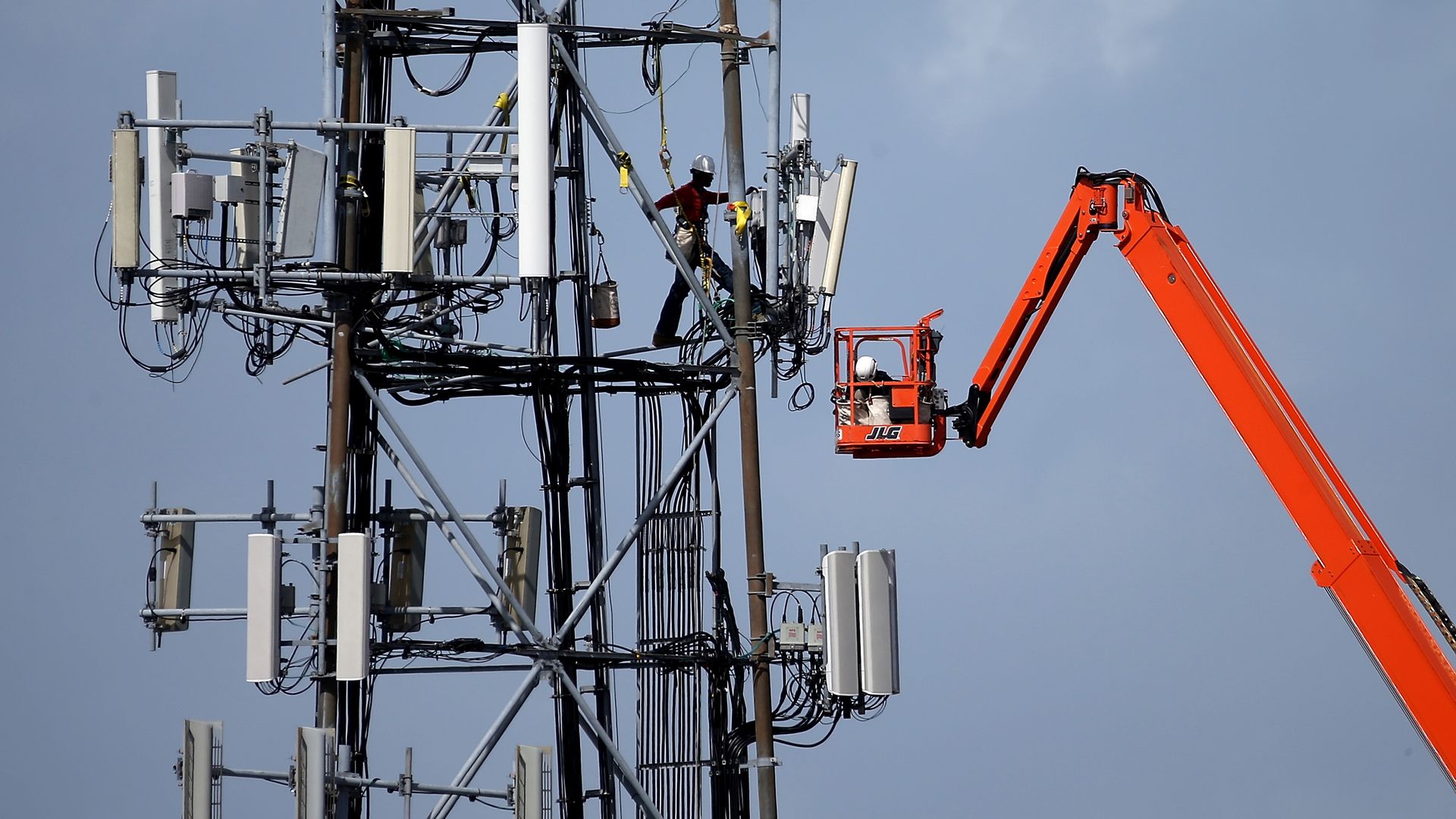A Trump administration proposal to nationalize some of the nation’s wireless network so as to combat threats from China in 5G raises several technical, provision and political issues, together with a fierce discussion over the right role of state in business.
The bottom line: The proposal demand aggressive government involvement within the non-public wireless market, representing a big shift in U.S. industrial policy that may vastly disrupt the business plans of America's largest telecommunication and technology firms.
Show less
As 1st according by Axios, a proposal circulated by Trump's National council proposes building a national 5G network in a very chunk of airwaves, referred to as mid-band spectrum.
While the protection of the wireless network and competition with China area unit each real threats, specialists doubt the feasibleness of this approach and question whether or not it'd truly cause a quicker, safer path to 5G property.
Here area unit a number of the problems that specialists say area unit raised by the proposal.
1. Disrupting non-public investment
All the foremost carriers are finance heavily to roll out their own 5G networks, with several already entering into trials round the country.
“People have either invested with already in roadmaps or area unit terribly near important investments,” same wireless business skilled Chetan Sharma. “Nationalizing a band while not important input can clearly produce lots of turmoil within the business.”
Ensuring a competitive market once the network is shared can be a challenge, Sharma same. It's unclear if smaller carriers and potential new competitors would have access.
2. business uproar
An appendix to the note anticipates that the harshest reaction to its proposals would come back from the satellite business, that uses the mid-band spectrum that the NSC suggests victimisation for 5G, and from cable giants Comcast and Charter. however the note suggests different players can be allies:
T-Mobile is seen as a doable sturdy supporter of the proposals as a result of it "lacks wealthy spectrum for nationwide 5G and would welcome additional level taking part in field" with AT&T and Verizon.
CenturyLink is seen as doubtless adjuvant as a result of it might use a nationwide 5G network to "monetize its fiber-rich network."
Google is equally seen as a possible ally as a result of additional net access suggests that additional individuals on-line to consume the ads Google serves.
AT&T, Verizon and Sprint area unit all expected to possess "mixed" reactions.
3. Impossibly short time frame
The three-year timeline arranged out by the proposal isn't possible, consistent with a wireless business supply. Even with non-public sector resources and competitive incentive to maneuver a quickly as doable, it'll take the nationwide carriers near a decade to make out full 5G networks.
Plus, any wireless network depends on sturdy fiber networks within the ground, which might got to be distended and refurbished for a all-out 5G network.
"The notion that the govt will singularly build this network in 3 years is buggy," the supply same.
4. large political blowback
A federal takeover of in camera funded and operated infrastructure would draw fireplace from either side of the aisle.
State and native governments can bridle up the concept of the feds putting off their ability to choose wherever network instrumentation may be placed on their streets and buildings.
The note indicates legal right can be invoked to justify clearing airwaves required to make the network, which might meet sturdy opposition from government and business users of these airwaves.
The Federal Communications Commission, that oversees the business use of spectrum and is concerned in 5G readying efforts, is associate degree bureau associate degreed wouldn't be compelled to accommodates an government order of this nature. this might set the stage for associate degree inter-governmental standoff.
5. Security might still be a challenge
One goal place forth by the proposal is to form a extremely secure network to bar growing security threats from China et al.. the matter is that 5G property can bank not simply on one single-band network, however a conglomeration of multiple differing kinds of networks.
In the end, the network is merely as secure as all the association points thereon.
Even if a slim slice is secure, the networks feeding into it would not essentially be secure and will so compromise the remainder of the network.
6. The marketplace for network gear is already extremely focused
Another argument arranged get in the documents is that the notion that such a centralized network might produce additional competition within the network instrumentation area. however most cellular network gear is already created by alittle range of firms.
On the radio aspect, there area unit very solely 3 massive players — and none area unit yankee.
Huawei (China) has been the quickest growing, with Ericsson (Sweden) and Nokia (Finland) following.
Although Huawei’s growing dominance could be a concern, the U.S. already prevents the foremost carriers from victimisation Huawei’s gear in its networks thus it’s not clear what quantity a centralized network would amendment this balance of power.
7. AI could be a massive concern, however unrelated
The document talks regarding China’s advanced role the event of computing.
That’s a heavy issue, particularly since U.S. firms area unit barred out of China (and the information to be gleaned there), whereas Chinese firms will participate within the U.S. market.
But, that has very little to try and do with 5G wireless networks, since AI process is finished at the server level.
“Clearly they're 2 various things,” Sharma same. “AI advantages from 5G however it doesn’t need it, and there China is sport ahead.”
Source: axios







0 التعليقات:
Post a Comment